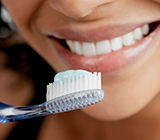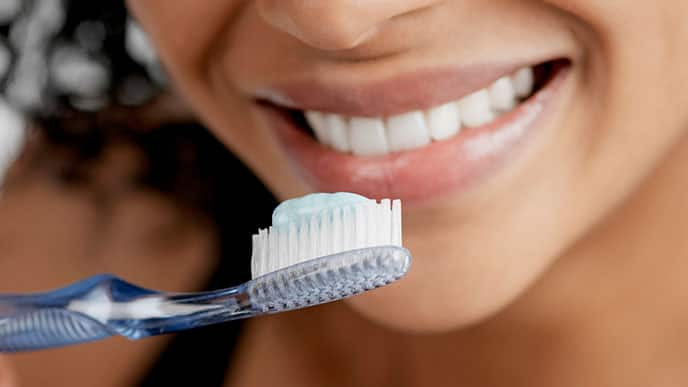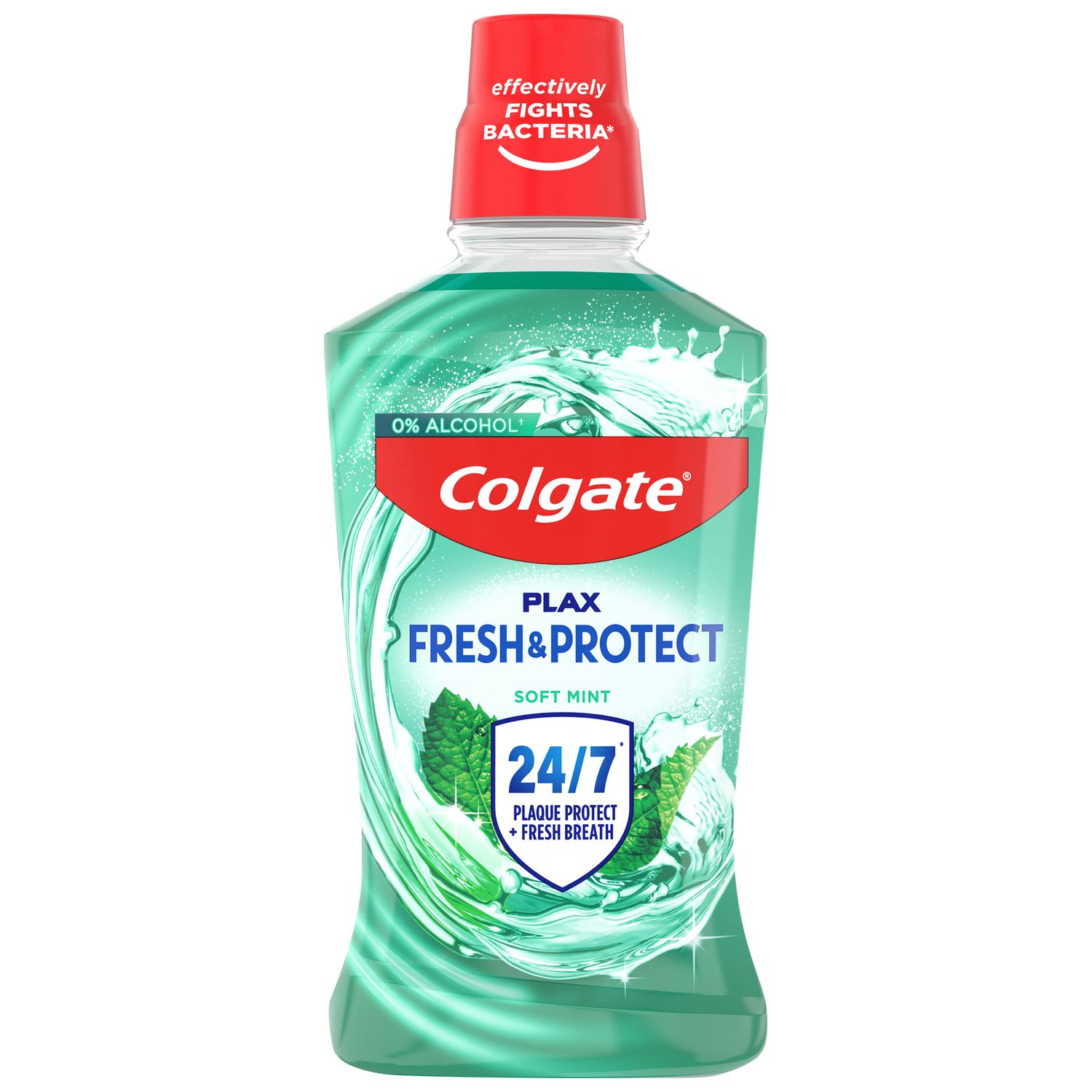-
-

FLUORIDE
What Is Stannous Fluoride Toothpaste?Stannous fluoride toothpaste helps prevent cavities, reduce sensitivity, fight plaque, and support daily gum and enamel health.

TEETH WHITENING
Why Should I Whiten My Teeth?Maybe you've always wanted a beautiful white smile. Or your teeth have yellowed over time...
-
Science & Innovation
- ORAL HEALTH CHECK
- PRODUCT MATCH
- Colgate® | Toothpaste, Toothbrushes & Oral Care Resources
- Oral Health
- What Causes Red Spots on the Roof of Your Mouth?


Red spots on the roof of your mouth can be caused by a variety of different reasons. Some are just a minor inconvenience, while others could be a sign of a more serious health issue that may require further investigation. Here are some common possibilities:
Canker Sores
Most people have had a canker sore at some point in their lives, and while these sores are more common on the inside of the cheeks or lips, they can occur anywhere including the roof of the mouth. Canker sores are generally a result of stress, eating particular foods, or coming in contact with other irritants. The sores normally start as small, red bumps and often develop a white center. There are over-the-counter treatments available, and most sores will heal in a week to 10 days.
Candidiasis
Also known as thrush or oral candidiasis, this fungal overgrowth can cause red bumps and white patches inside the mouth. Common in those with dentures and diabetes, candidiasis is most often treated by preventing the overgrowth in the first place. According to the ADA, oral antifungals may also be used to combat particularly tough cases. Learn more about thrush in the Colgate Oral Care resources.
Coxsackievirus
The virus behind hand, foot and mouth disease, coxsackievirus can cause painful blisters and red spots on the roof of the mouth, as well as on the hands and feet. It is most common in children under five years of age, but does occur in people of all ages. Treatment options include over-the-counter medications for fever and pain, as well as special medicated mouthwashes to help alleviate the discomfort associated with the oral sores.
In rare cases, oral sores or lesions can be a sign of oral cancer, so it is important to have any spots that are painful, cause difficulty in eating or drinking or do not heal quickly checked by your dentist.
Related Articles
Related Products

Helping dental professionals
More professionals across the world trust Colgate. Find resources, products, and information to give your patients a healthier future










